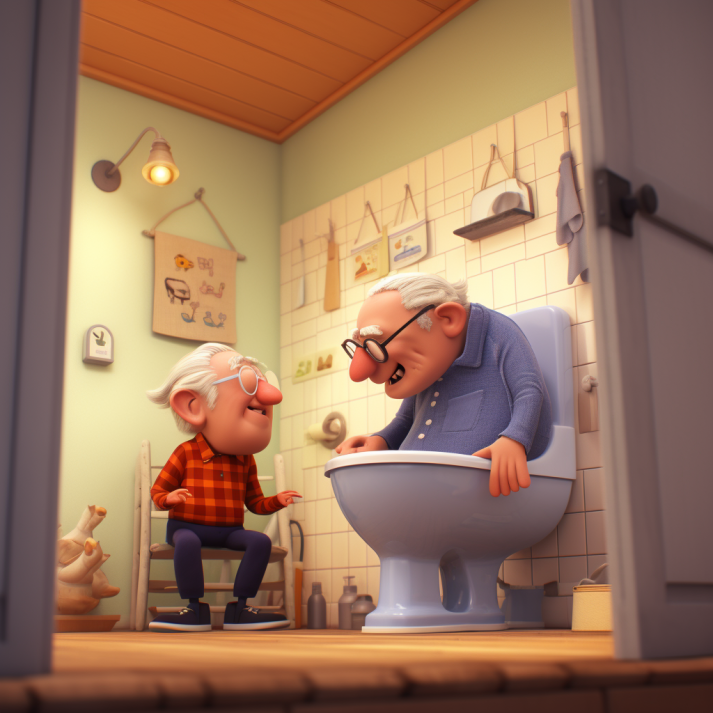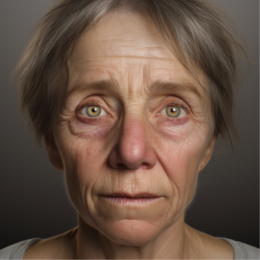Incontinence Care: 9 Essential Tips for Caregivers

Taking care of elderly loved ones can be a beautiful journey filled with many shared moments. However, it can sometimes bring challenges, such as providing incontinence care. Research shows that almost half of older adults in the US deal with urinary incontinence (American Journal of Urology, 2022). But worry not! This article is here to help! We’re going to discuss what incontinence care is, how to deal with it, offer nine simple tips for caregivers, and ways to prevent it in old age.
What is Incontinence Care?
In simple terms, incontinence care is all about managing and treating the involuntary loss of urine or stool. It’s not just about medical treatments; it’s also about using behavioral strategies and providing loving support to help your loved ones maintain their dignity and quality of life.
Managing Incontinence in the Elderly
When treating incontinence in the elderly, it’s important to know that there’s no one-size-fits-all solution. You start with a doctor’s diagnosis to identify the cause and type of incontinence. Then you work on a treatment plan that may involve medications, physical therapy, or even surgery. Along with these, proper caregiving strategies are key to effectively managing incontinence.
Statistics:
- Around 80% of people suffering from urinary incontinence can see improvements with treatments (Urology Care Foundation, 2023).
- With the right combination of treatments, incontinence can be improved or even completely cured in up to 70% of cases (World Health Organization, 2022).
Incontinence Care: 9 Easy Tips for Caregivers
Caring for someone with incontinence can feel overwhelming, but it doesn’t have to be! Here are nine simple tips to make your caregiving journey easier and more effective:
1. Create a Routine
Regularly scheduled bathroom breaks can help prevent accidents. Try gently reminding your loved one to use the bathroom every 2-3 hours.
2. Keep Them Hydrated
Ensure your loved one drinks fluids throughout the day. While it might seem surprising, not drinking enough can lead to urinary tract infections, which can make incontinence worse.
3. Promote a Healthy Diet
A diet rich in fiber can help prevent constipation and, in turn, reduce the risk of incontinence. Eating right also helps keep them healthy overall.

4. Encourage Pelvic Exercises
Exercises like Kegels can strengthen the pelvic muscles, helping to improve bladder control. Of course, always check with a healthcare professional before starting a new exercise routine.
5. Clean Up Promptly
As soon as an accident happens, clean up right away. This helps prevent skin irritation and infections.
6. Use Incontinence Products
Incontinence products, like adult diapers or bed pads, can be lifesavers. They can help manage symptoms and make both of your lives a little easier.
7. Respect Their Dignity
Incontinence can be embarrassing for many people. It’s vital to create an environment of respect and remind them that incontinence is a medical condition, not a personal failure.
8. Get Professional Help
Don’t hesitate to reach out to professionals, such as physical therapists or occupational therapists. They can offer you great advice and strategies.
9. Offer Emotional Support
Let your loved one know they aren’t alone. A bit of reassurance can go a long way in managing incontinence effectively.
Preventing Incontinence in Old Age
While you can’t always prevent incontinence, maintaining a healthy lifestyle can reduce the risk. This includes regular exercise, a balanced diet, less alcohol and caffeine, and not smoking.
Statistics:
- Regular physical activity can lower the risk of urinary incontinence by up to 25% (American Journal of Obstetrics and Gynecology, 2022).
Conclusion
Incontinence care is a vital part of caring for the elderly, and it’s a task that demands kindness and understanding. By using these tips, you can make a real difference in the life of your loved one. And remember, there’s plenty of help available for both the person dealing with incontinence and the caregiver.
References
- American Journal of Urology. (2022). Incontinence in older adults.
- Urology Care Foundation. (2023). Treatment options for urinary incontinence.
- World Health Organization. (2022). Aging and health.
- American Journal of Obstetrics and Gynecology. (2022). Impact of physical activity on urinary incontinence in women.





